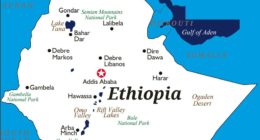Before Leaving Home
Travel documents
- Passport An original passport of not less than 6 months validity is a requirement to access entry.
- E-visa
- To apply for an Ethiopian e-visa, you should provide an original valid passport.
- Ascanned photocopy of your passport’s biographical page.
- A recent passport sized-photo that is colored with specific dimensions as 51mm×51mm.
- An online completed page with the required personal information.
Travel costs
- Flights to Ethiopia are generally cheap depending on the dates checked in.
- To get the best deals, sign up with SkyScanner to find good deals for you from all available airlines.
- Plan on spending approximately $40 or ETB 1,250 per day for one person.
Health and Medical care
- To obtain a vaccination certificate, ensure that you are vaccinated against Yellow Fever in your country.
- Get immunized for polio, typhoid and Hepatitis A and B.
- Inquire on the current health situation in Ethiopia with your country’s health experts.
- Consult with your doctor before travelling in case you have any heart condition or a respiratory complication.
Electric Appliances
- Standard voltage used in Ethiopia is 220V with a frequency of 50Hz.
- A standard voltage with 100V to 127V used in the US and South American countries is not compatible to the ones in Ethiopia. Hence, carry a voltage converter or a power plug adapter to use.
- Sockets and power plugs here are of the following types; E,C,L and F.
Clothes and attire to carry
- Ethiopians are know n to be very conservative and value their dress code. If you plan to visit, carry descent clothes to wear.
- For women, long dresses that cover shoulders and knees are appropriate. Trousers and long-sleeved blouses are also acceptable.
- For men, shirts either short-sleeved or long-sleeved with long trousers are considered modestly.
Religion and language
- Religion in Ethiopia has a greater influence on its people with half the population adhering to Ethiopian Orthodox church teachings.
- The other half consists of Muslims and those who follow Judaism forms.
- Amharic is the National Language and is widely spoken by most people.
- English language is the language of instruction mostly used in secondary schools.
Dates, time and Ethiopian calendar
- Ethiopians follow a solar calendar that is unique as it is almost similar to Julian and Coptic calendars.
- A year has 13 months with the first 12 months having 30 days and the last month consisting of 5 days or 6 days in a leap year.
- Christmas is celebrated on January 7th.
- New year is celebrated on September 11 or 12th and there is a 8 year gap with the Gregorian calendar.
- Meskel celebrations that commemorates the founding of the cross are held on 26th or 27th September.
- A typical Ethiopian day begins at 6am when the sun rises and is considered as 1.
- To change the Ethiopian time to western clock, add or subtract 6 hours to the western time zone.
Weather
- There is little rain in April and March and much rain starts in June to September.
After Arrival
At the airport
- Present your printed copy of the e-visa, an original passport and Yellow Fever certificate to the immigration offices.
- Upon arrival, the visa is valid for 3 months in the country and can’t be used at any circumstance to re-enter Ethiopia.
- As you enter the airport building, you will have to pass through a security check screen.
Internet access
- Ensure that your phone is carrier unlocked
- Upon arrival at the airport, register your phone at the Ethio-telecom office located on your right-hand side after picking your bags.
Currency and exchange rate
- Ethiopian birr is the local currency used in the country.
- Notes available are of 100, 50, 10, 5 and 1 denominations.
- At the airport, any foreign currency can be exchanged in authorized hotels and banks.
- ETB 3,000 is equivalent to $100.
- Banking hours run from 8am to 5pm on Mondays to Fridays and 8am to 11am on Saturdays.
Transport and accomodation
- Ethiopian airline provides a free transport service by a shuttle to a hotel of your choice when requested.
- There are nice and affordable hotels with accommodation near Addis Ababa International airport such as Bole Skygate Hotel, Hotel Lobelia, Sapphire Addis and Ethiopian Skylight Hotel.
Emergency and safety information
- Always carry a copy of your passport and keep it safe.
- Avoid walking on your own during the night in major cities.
- Be vigilant of pick-pockets in crowded areas.
Ethiopian People
Hospitality
- Ethiopians are known across the globe for their remarkable hospitality and appreciate entertaining visitors in their homes.
- A visitor will always be welcomed with a big smile by the host followed by a cup of coffee.
- It is viewed as impolite to decline the offer.
- Foreigners are normally referred to as farenji meaning a foreigner and refer to themselves as habesha meaning Ethiopian. Most people here are always willing to help out incase one needs help.
Greetings
- Greetings hold an important place in the Ethiopian culture consisting of handshakes as shoulders touch each other followed by a direct eye-contact.
- It is common to see women who have a close relationship kissing each other on the cheeks three times or even more.
- In the presence of elders, it is customary that they be greeted first by bowing.
Religion
- People here value their religious beliefs and practices in accordance with the Orthodox Christian teachings and Islamic culture taking the lead with the largest population.
- Wednesdays and Fridays are considered as fasting days with no touch on animal and dairy products such as milk, meat and eggs.
- Expect to see most people wearing small crosses around their necks that act as religious symbols.
Shopping
- Ethiopia is known to have the largest market in Africa called merkato
- Bargaining in the market is common and as you try to bargain for an item, be calm and smile.
- However, items in shops found in towns have a fixed price.
- Shopping hours start from 8am to 1pm and 2pm to 5:30pm on Mondays to Saturdays.
Gifts
- Gifts are highly appreciated in the Ethiopian culture and are normally given during religious celebrations and events.
- Most gifts are always sealed and wrapped when submitted to the host.
- Expensive gifts are not commonly given as most people are not rich.
- Examples of common gifts to give are flowers, pastries or fruits.
- It is a norm to give gifts with the right hand or two hands to symbolize respect and the left hand is never used in such scenarios. The left hand is reserved for ablution purposes.
Eating out
- There are a variety of ethnic and traditional restaurants with delicious Ethiopian cuisine to eat from such as Beer Garden, Kaya Restaurant, Garden Paradise Restaurant and The Canteen Restaurant.
- Injera is the staple cuisine found in most restaurants and is served with almost every meal.
- It is made from Teff grain and is usually a round pancake that is fermented.
- Expect to find menus in restaurants written in both Amharic and English languages.
Tipping
- Tipping waiters in Ethiopia has been a common practice for so many years.
- 10% of the payment made in the restaurant is appreciated as most waiters entirely depend on it.
Most common problems to encounter
- Expect to see many beggars in the streets in major towns and cities such as Addis Ababa.
- Be vigilant of people begging or strangers asking for assistance as most robbers and criminals adopt this technique of feigning illness to distract your attention.
- Avoid asking for directions from strangers at any give time. It is advisable to ask directions from your tour guide or check it out on your travel itinerary.
- For security reasons, avoid walking or driving during the night in rural places.



